Salesforce has grown from a simple CRM platform into a powerful cloud-based ecosystem. It helps businesses manage customer relationships, streamline operations, and grow their digital capabilities. As new technologies emerge, Salesforce consulting is evolving. Today, three key trends are shaping its future: Artificial Intelligence (AI), low-code development, and hyper-personalization.
AI Is Changing Salesforce Consulting
Smarter CRM with AI
AI is one of the biggest shifts in Salesforce consulting. With tools such as Einstein GPT, AI is now built into many Salesforce features. It helps businesses automate tasks, analyze data, and improve customer experiences.
Salesforce consultants can use AI to:
- Predict customer behavior.
- Score leads based on past actions.
- Suggest the best next steps for sales and service teams.
This makes customer interactions smarter and more effective.
Automation with AI
AI also boosts automation. Chatbots and virtual assistants can answer common questions. AI can also handle simple tasks such as scheduling meetings or sending follow-up emails. This saves time and improves efficiency.
Salesforce CRM consultants use AI to design these smart workflows. As a result, companies get more done with fewer errors.
Responsible Use of AI
AI offers many benefits, but it also raises concerns. Businesses must use it responsibly. Consultants play a key role here. They help ensure the AI is fair, secure, and transparent. Ethical AI is becoming a standard part of Salesforce consulting services.
Low-Code Platforms: Faster, Easier Development
Low-code means building apps without writing a lot of code. In Salesforce, tools such as Lightning App Builder and Flow Builder make this possible. Users can drag and drop elements to create workflows or interfaces.
Low-code is faster than traditional coding. It also allows people without a tech background to build useful tools.
Benefits for Businesses
Low-code helps companies move quickly. They can launch new features without waiting for developers. This is useful in fast-changing industries. It also cuts costs. Businesses don’t need large IT teams to build every solution. A small team or even non-technical staff can create what they need.
Role of Salesforce Consulting Services
Salesforce consulting partners help clients get the most out of low-code tools. They guide teams on how to use these platforms effectively. They also make sure solutions are secure, scalable, and aligned with business goals.
Consultants may also train staff to use low-code tools. This builds in-house skills and reduces future dependency on external developers.
Hyper-Personalization: The New Standard
Hyper-personalization is about delivering unique experiences to each customer. It uses real-time data, AI, and automation to tailor content, offers, and communication.
It goes beyond basic personalization such as using someone’s name. Instead, it focuses on each person’s behavior, preferences, and journey.
Salesforce Tools for Personalization
Salesforce’s Customer 360 platform brings data together from sales, service, marketing, and more. It gives a complete view of each customer.
With tools such as Marketing Cloud and Experience Cloud, businesses can:
- Deliver custom messages at the right time.
- Recommend products based on browsing history.
- Adjust website content in real time.
Salesforce consulting companies help set up and optimize these tools. They ensure data flows smoothly across departments and platforms.
The Consultant’s Role
Salesforce CRM consultants design strategies for hyper-personalization. They help companies:
- Segment customers more accurately.
- Build dynamic customer journeys.
- Track and measure personalization success.
Done well, hyper-personalization increases engagement, loyalty, and sales.
More Trends Reshaping Salesforce Consulting
Industry-Specific Clouds
Salesforce now offers cloud solutions tailored to different industries. For example:
- Health Cloud for healthcare.
- Financial Services Cloud for banks and insurance firms.
These platforms have unique features and compliance needs. Salesforce consulting services must understand these industry requirements. This ensures their clients use the right tools in the right way.

Data Privacy and Compliance
Laws such as GDPR and CCPA require businesses to protect customer data. Salesforce CRM consultants help companies stay compliant.
They ensure data is collected, stored, and used properly. They also build systems that allow users to manage their privacy settings. Security is not optional, it’s a must in every Salesforce implementation.
DevOps and Agile Methods
Modern Salesforce development is becoming more agile. DevOps tools such as Copado and Gearset support fast, continuous changes.
Salesforce consulting partners use these tools to:
- Test and deploy updates quickly.
- Reduce bugs and downtime.
- Align development with business needs.
Agile methods mean shorter project cycles, faster feedback, and better results.
What Does This Mean for Salesforce Consultants?
Salesforce consultants can no longer focus only on technical work. They now need to understand:
- How to use AI tools effectively.
- How to build with low-code platforms.
- How to create personalized customer experiences.
They also need soft skills such as strategic thinking, communication, and change management.
Stand Out from the Competition
There are many Salesforce consulting companies out there. To stand out, consultants must offer more than basic setup services. They need to deliver real business outcomes.
This could mean:
- Helping clients reduce costs.
- Improving sales performance.
- Enhancing customer satisfaction.
Offering these results sets top consultants apart.
Evolving Client Needs
Clients now expect long-term support, not just one-time projects. They want consulting partners who can:
- Guide digital transformation.
- Train their teams.
- Provide ongoing optimization.
This changes how consultants work. It’s less about quick fixes and more about lasting value.
In conclusion,
The world of Salesforce consulting is changing fast. AI, low-code platforms, and hyper-personalization are leading the way. These trends help businesses work smarter, move faster, and connect better with their customers.
For Salesforce consulting services, this means new tools, new strategies, and new expectations. Consultants must evolve, too. They need to master emerging technologies and focus on outcomes.
In the end, the future of Salesforce consulting is bright, but only for those who are ready to embrace change.
Ready to take the next step?
Contact Victrix today to speak with a Salesforce expert and start building your smarter CRM future.









Leave A Comment